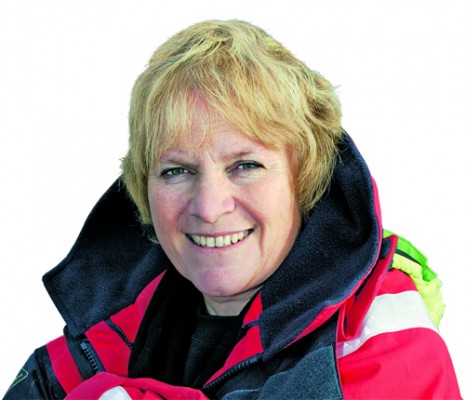Libby Purves: At sea we must have confidence in every hand, boatyard and factory that has ever touched our boat or her gear
It’s been like hospital visiting, this winter. Major abdominal surgery, complications, expert consultants called in, conferences about treatment plans, unfamiliar parts exposed, stiff upper lips necessary all round. Not anyone in the family, you understand: just the boat.
Wild Song owed us nothing, after her 9,000-mile journey to Cape Horn and back, followed by a quick flip to Ireland, an abortive assault on fogbound Brittany and a journey up-Channel for a winter’s work. But we owed her plenty, even after the posh new set of sails. She deserved a proper re-rig, new electrics, instrument repeaters that actually work instead of waving their little pointers hysterically before slumping back to zero. The engine needed thought, and there’s nothing like a good scrape- around in the bilge to see what’s going on. Paul, who is Chief Executive Officer (Maintenance) as well as Master-under-God, had her hauled out onto a riverbank ten minutes from home to proceed with this programme of health checks and spa-style beautification.
“We hauled her out for a programme of health checks and spa-style beautification”
Which is where the abdominal surgery came in. Unexpectedly. A visible keelbolt
was corroded. The others were invisible, so presumed equally corroded. Eeeek! After prolonged cogitation we were treated to the alarming but necessary sight of the lead keel being completely removed and inspected. There is nothing more unnerving than a modern boat with the keel lying loose alongside her, even if it then transpires that everything is fine, and expertise is at hand to make the whole thing even more solid than before. Having grown up with long-keeled boats, I was not really prepared to accept that fin keels were detachable at all. I couldn’t look. Indeed the subsequent overhaul of the stern gland and the discovery that actually a new engine would be more sensible than hanging on to the old one were quite relaxing in comparison.
But let other, more technical, voices go into detail. I just pull the sails up and down, tend the sheets, look up courses and man the wheel. It was all a reminder of the marvellous degree of human trust in craftsmen, something which colours every aspect of modern life. I get furious when journalists prattle on about ‘the death of trust’ and how we’re all cynical about strangers’ motives and goodness in an advanced post-Christian urban society. In reality, we are almost ludicrously trusting compared to our Victorian ancestors who checked their own cartwheels and knew their horses. We confide our lives and families to complex trains, planes, and roads, every day: invisible technicians, builders, designers, electricians and civil engineers hold our safety in their hands, and we have to believe in their skill and goodwill and conscientiousness. Just as on the road, we entrust ourselves to fellow drivers we will never know. As Sir Thomas Browne wrote nearly four centuries ago, ‘It is in the power of every hand to destroy us, and we are beholden to every one we meet, he doth not kill us.’
So when we do take most of our fate in our hands by going to sea, the boat beneath us must be trusted. That means confidence not just in our own maintenance but in every hand, in every yard and equipment factory, which ever touched the ship or her gear. If anybody cuts corners, makes a false economy or knocks off early, somewhere far from land we could face disaster.
The odd thing is, I really like thinking about that. And these refit winters, when the innards of our own boat and the Tall Ship I sail on are exposed, are good times to reflect on craftsmanship, conscience, trust and human goodwill. Usually, we only read about this relationship when someone – medical or engineering – slips up and gets sued. It is good to think about how often that doesn’t happen.
LIBBY PURVES




